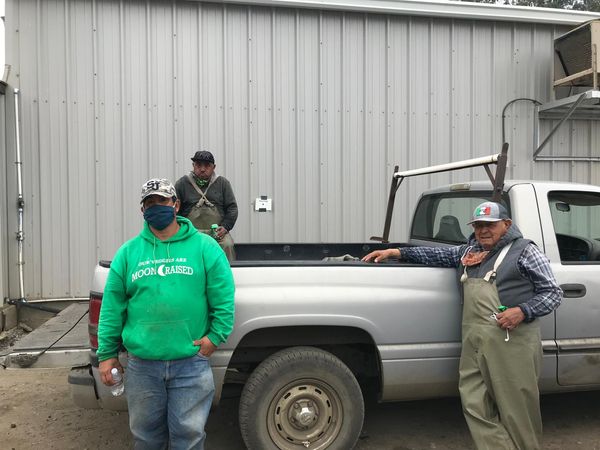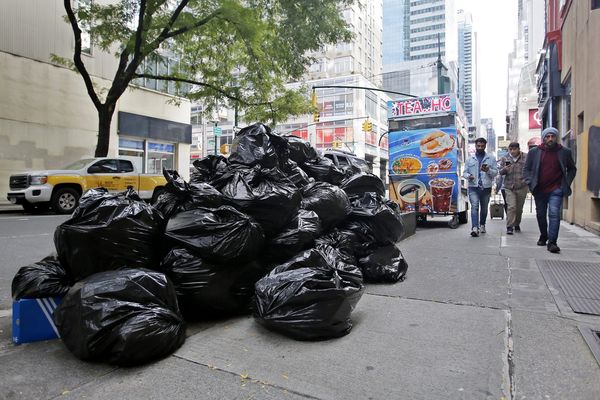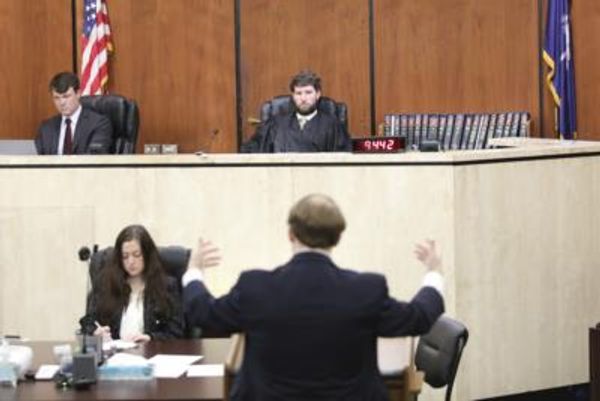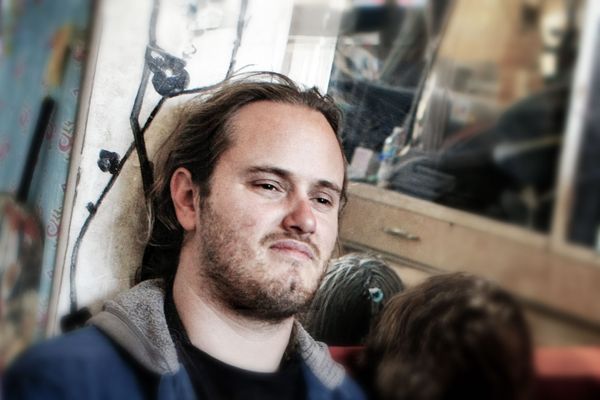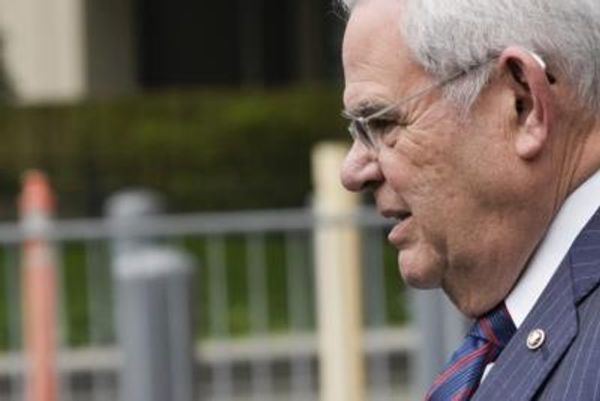
More than 1,400 people have been arrested across the US during a week of intense police crackdowns on a sprawling campus movement of pro-Palestine student demonstrations.
As Joe Biden defended students’ free speech rights but warned them that “dissent must never lead to disorder”, colleges across the country brought law enforcement to campus to arrest dozens or even hundreds of protesters and clear away their encampments.
But the level of force with which some of these law enforcement agencies have responded to protests, which in the overwhelming majority of cases have been peaceful, has shocked some observers – and even some of the people arrested.
“It is a level of repression of campuses in the United States that I have not seen in my lifetime,” said Annelise Orleck, a 65-year-old Dartmouth labor historian who was arrested on Wednesday as she attempted to protect her students from lines of heavily armed riot police.
Police officers arresting an elderly demonstrator @WMUR9 pic.twitter.com/2hOFaiNcHq
— Ross Ketschke WMUR (@RossWMUR) May 2, 2024
Orleck, a former head of Dartmouth’s Jewish studies department, was grabbed by police, thrown to the ground and then dragged along the grass after she demanded that a police officer give her back her phone, which she had been using to record arrests. A video of the incident, which showed officers manhandling the white-haired older woman, went viral.
For Orleck, who was teaching a US politics class on the civil rights movement hours before she became one of 90 people arrested at Dartmouth, the degree of violence that has accompanied the campus arrests has been shocking.
“They’re sending a message to American students,” she said.
When Orleck was brought to a van after her arrest, she said, she found the other people arrested alongside her included a second grade teacher, a preschool teacher and two Dartmouth student journalists, both of them with their press credentials clearly displayed. “They were just stunned,” she said.
As the New York City police department arrested 109 protesters at Columbia University on Tuesday, officers “pushed protesters to the ground and slammed them with barricades”, the Columbia Spectator reported. Body camera footage showed police using stun grenades against protesters, and videos also showed one officer throwing a protester down the stairs in front of a campus building, the student newspaper reported. A police officer fired a gun as police cleared one campus building, which the department later said was an accidental discharge.
At Emerson College in Boston, where 118 people were arrested on 25 April, student journalists with the Berkeley Beacon “saw several police officers piling on a single person’s body as well as blood on the ground”.
At Cal Poly Humboldt, police were seen swinging batons at groups of demonstrators. At the University of California, Los Angeles, student protesters said that multiple people had been hit with rubber bullets during a chaotic all-night law enforcement operation to clear a tent encampment in the middle of campus.
The Los Angeles Times confirmed that “at least one officer is seen on video shooting rubber bullets into the crowd”, and later documented an officer who shot a frontline protester “square in the chest with a ‘less-lethal’ round”. That shooting appeared to happen as officers grew frustrated with some protesters throwing water bottles and pieces of wood at them, despite calls by other protesters for them to stop, the Los Angeles Times reported.
Orleck, the Dartmouth historian, is not the only professor to go viral for being violently arrested alongside her students. Multiple professors at Emory University have also been arrested, including an English professor, Noëlle McAfee, who told a local news outlet that she was arrested after she saw officers throw a young protester to the ground, whom they started “punching and rolling and knocking and punching”, and she told the officers to stop.
“When they said, ‘ma’am you need to step away,’ no human being is going to step away,” she said.
WATCH: Among those arrested today were Noelle McAfee, Chair of the Philosophy Department at Emory University.
— Patrick Quinn (@PatrickQuinnTV) April 25, 2024
I’ve asked for a comment from Emory on this arrest, no word yet.
This video provided to us by an #Emory PHD student. You can hear him in this video. @ATLNewsFirst pic.twitter.com/86aJgb7NUX
On 27 April, Steve Tamari, a 65-year-old historian of the Middle East at Southern Illinois University at Edwardsville, was also dragged to the ground by law enforcement while filming a demonstration at Washington University in St Louis.
The police violence inflicted upon my friend Steve Tamari for standing against Netanyahu’s genocide is indicative of the brutality communities face around the world when they dare to demand peace & justice, from St. Louis to Gaza. We need peace, diplomacy and a #CeasefireNow! https://t.co/dUIiyMWNXD
— Cori Bush (@CoriBush) May 1, 2024
Being “body slammed” and crushed by several St Louis County police officers left him in the hospital with “multiple broken ribs and a broken hand”, Tamari said in a statement posted on X.
There have been 970 US student protests related to the Israel-Gaza conflict between 7 October and 26 April, the vast majority of them peaceful, according to the latest available statistics from the Armed Conflict Location and Event Data Project (Acled), which tracks political violence and political demonstrations across the US and around the world.
The number of student protests related to the Israel-Gaza conflict surged in April, Acled found – as did the rate of police “interventions”, which Acled defines as police actions including arrests and physical dispersions of crowds with physical force or chemical agents. At student protests where there were no counter-demonstrators, the analysis found, “police have intervened against pro-Palestine demonstrations more than four times as often as pro-Israel demonstrations”.
The Associated Press has tallied more than 2,400 arrests across 46 campuses since 17 April.
Before officers in heavy body armor arrived at Dartmouth, the nascent student Palestine solidarity protest was “100% peaceful” and “remarkably diverse”, Orleck said. “There were many Jews involved in this protest, and none of us saw any signs of antisemitism.”
The labor historian said she wanted to push back on political claims that the campus crackdowns were related to making sure that students and faculty are safe, or effective in protecting them from antisemitism. Her son showed her a tweet responding to her arrest that noted the irony: “A great way to fight antisemitism is by beating up the former head of Jewish studies on campus.”
There are striking resonances between the last week of police violence and the killings of student protesters at Kent State on 4 May 1970, exactly 54 years ago, Orleck said, but it’s still not clear if “all of these violence assaults” in the past weeks will make Americans today feel that things have gone too far.
The violence on their campus has left both students and faculty shaken, she said. “We are very worried about our ability to speak freely, and students are worried about their ability to assemble and speak freely. It’s a tense moment. The question is, can campuses become spaces, can they make them spaces, where constitutional rights don’t apply?”
At Dartmouth, where there is still another month until graduation, there’s plenty of time for protests to continue. But “the students are frightened,” she said. “They feel like if they protest on the green they’ll get arrested. They’re trying to think about what else to do.”
